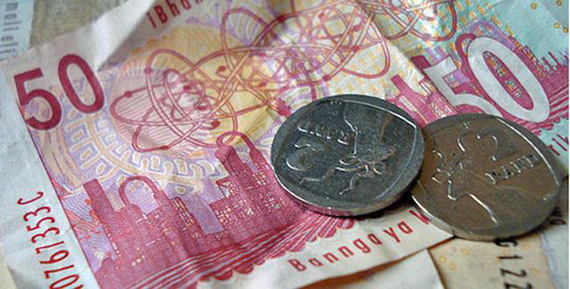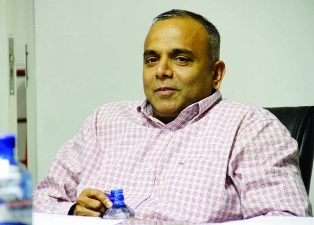
HIGHER interest rates in the United States, expected from the middle of next year, could cause further rand weakness, requiring South Africa to raise its economic growth rate to keep on attracting investors.
During a Fitch Ratings teleconference last week, analysts said they expected the US Federal Reserve to complete the tapering of its multibillion-dollar asset purchase programme next month.
This would be followed by the start of a cycling of increasing interest rates by the middle of next year.
Analysts expect the Fed to raise rates to about 3,75% by late 2017 or early 2018.
The asset-purchase programme started at $85bn a month and has now been whittled down to $25bn amid signs of economic recovery in the US.
The end to monetary stimulus and the possibility of interest rates rising in the US next year has raised concern that capital will flow out of emerging markets back to the US.
Macquarie Securities economist Elna Moolman said the rising US rate cycle might pose a risk to the rand, but this also depended on other factors.
These included the expected narrowing of the current account deficit, and whether rising US rates occurred against the backdrop of improving global growth and commodity prices.
- Chamisa under fire over US$120K donation
- Mavhunga puts DeMbare into Chibuku quarterfinals
- Pension funds bet on Cabora Bassa oilfields
- Councils defy govt fire tender directive
Keep Reading
“I think a narrowing of the current account (deficit) could counteract the possible negative risk from rising US rates on the rand, especially if this occurs alongside higher commodity prices,” she said.
Ms Moolman forecast the current account shortfall to narrow gradually in the medium term, which meant that “South Africa’s foreign funding requirement should decline”.
Nedbank economist Isaac Matshego said the early stages of higher interest rates in the US could lead to heightened financial market volatility as the “search for yield” switched to a “flight to safety”.
“South Africa will need to raise its economic growth rate and thus support corporate earnings,” he said.
“A decline in portfolio inflows would in all likelihood put the rand under pressure.”
Capital inflows, which have usually taken the form of foreign investors buying local bonds and equities, have helped fund South Africa’s large current account deficit.
The deficit on the current account is expected to narrow this year, amid expectation that a weaker rand will boost exports while weak domestic demand causes a moderation in import growth.
Fitch believes financial markets may not be “fully prepared” for higher interest rates in the US despite the Fed’s forward guidance. “Current low volatility and high asset prices suggest markets have not priced in much uncertainty,” Fitch’s head of Europe, Middle East and Africa sovereign ratings, Ed Parker said.
“Therefore, in our shock scenario, the spillover effects to the rest of the world could be substantial.” – BDLive










